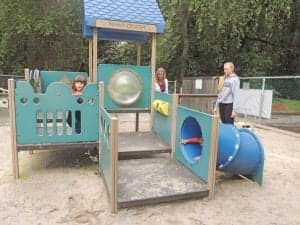In observance of SIDS (sudden infant death syndrome) Awareness Month this October, Pathways Awareness, a nonprofit organization focused on increasing knowledge about early detection and therapy for infants and children with early motor delays, has launched a campaign to educate parents on balancing back sleeping with “tummy time” when babies are awake. Back sleeping prevents SIDS; however, according to the organization, the large amount of time spent on their backs during sleep makes babies’ awake-time positioning critical to helping prevent motor delays.
According to Pathways Awareness, while back sleeping is critical for preventing SIDS, "tummy time" (safely positioning babies on their stomachs when awake) helps prevent early motor delays. The Pathways Awareness Medical Round developed a free, online video and guidelines to help parents learn how to safely include tummy time and back sleeping into a child’s day.
According to the organization, pediatric therapists noticed a dramatic increase in early motor delays in the past 6 years, and back sleeping has contributed to the trend. Back sleeping, combined with more awake time spent in car seats and bouncers, causes babies too spend so much time on their backs that they are not able to develop their neck and back muscles. This can lead to conditions such as a flat head (plagiocephaly), tilted neck (torticollis), and other speech and fine motor delays as well as the inability to meet critical physical milestones in the first months and years of life, according to Pathways Awareness.
Related articles:
SIDS Incidence Stabilized in California
Smoking During Pregnancy Increases Risk of SIDS




